-

Youth
Youth's narrator, a student in 1950s South Africa, has long been plotting an escape from his native country. Studying mathematics, reading poetry, saving money, he tries to ensure that when he arrives in the real world he will be prepared to experience life to its full intensity, and transform it into art. Arriving at last in London, however, he finds neither poetry nor romance. Instead he succumbs to the monotony of life as a computer programmer, from which random, loveless affairs offer no relief. Devoid of inspiration, he stops writing and begins a dark pilgrimage in which he is continually tested and continually found wanting. Set against the background of the 1960s, Youth is a remarkable portrait of a consciousness turning in on itself. J. M. Coetzee explores a young man's struggle to find his way in the world with tenderness and a fierce clarity. (20021018) -
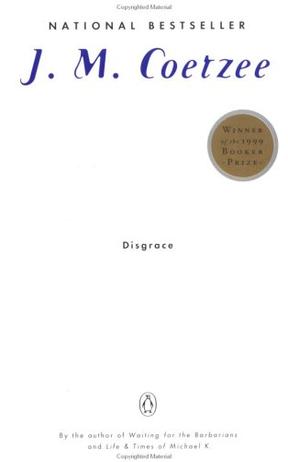
Disgrace
Disgrace--set in post--apartheid Cape Town and on a remote farm in the Eastern Cape--is deft, lean, quiet, and brutal. A heartbreaking novel about a man and his daughter, Disgrace is a portrait of the new South Africa that is ultimately about grace and love. At fifty--two Professor David Lurie is divorced, filled with desire but lacking passion. An affair with one of his students leaves him jobless and friendless, except for his daughter, Lucy, who works her smallholding with her neighbor, Petrus, an African farmer now on the way to a modest prosperity. David's attempts to relate to Lucy, and to a society with new racial complexities, are disrupted by an afternoon of violence that changes him and his daughter in ways he could never have foreseen. In this wry, visceral, yet strangely tender novel, Coetzee once again tells "truths [that] cut to the bone" (The New York Time Book Review). A finalist for The National Book Critics Circle Awards Coetzee is the only writer to have been awarded the Booker Prize twice -
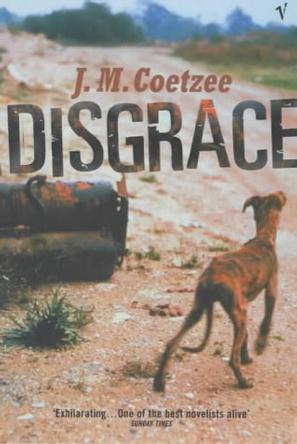
Disgrace
A divorced, middle-aged English professor finds himself increasingly unable to resist affairs with his female students. When discovered by the college authorities, he is expected to apologise and repent in an effort to save his job, but he refuses to become a scapegoat in what he see as as a show trial designed to reinforce a stringent political correctness. He preempts the authorities and leaves his job, and the city, to spend time with his grown-up lesbian daughter on her remote farm. Things between them are strained - there is much from the past they need to reconcile - and the situation becomes critical when they are the victims of a brutal and horrifying attack. In spectacularly powerful and lucid prose, Coetzee uses all his formidable skills to engage with a post-apartheid culture in unexpected and revealing ways. This examination into the sexual and poliitcal lawlines of modern South Africa as it tries desperately to start a fresh page in its history is chilling, uncompromising and unforgettable. -
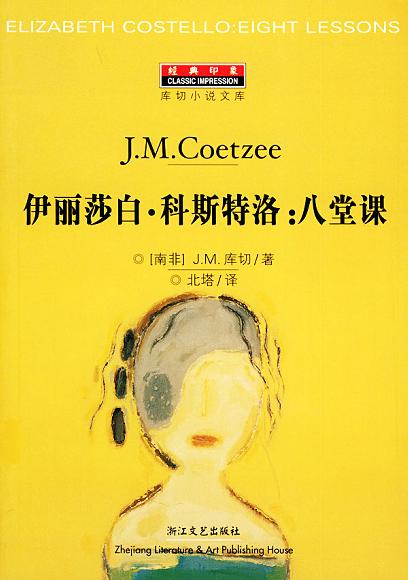
伊丽莎白·科斯特洛:八堂课
编辑手记: 写法怪异的作家很多,但是很少有人像库切这样每部作品都要变换叙述套路。跟他以前的小说相比,2O03年完成的《伊丽莎白·斯特洛:八堂课》则完全是另一种实验文本,看上去很像一部思辨录,可是人物关系和人物本身的话语层次又极为丰富。这部别出心裁的复调小说早晚会成为文本研究的一项重要课题,当然那是派给学者们的差事,对于大多数读者来说,倒是不妨跟着库切的人物去体验那种悲凉心境——当主人公与世人周旋之际,你差不多也能发现当下生 活的精神陷陕。 库切这回的主人公是一位年近七旬的女作家,名叫伊丽莎白的澳大利亚太,东西不多却很有影响,这有点像库切本人。也许,你和以把伊丽莎白视为库切的部分替身,确实有许多因素给人这种暗示,包括早年的欧洲经历,作为作家在英语世界中的边缘身份,以及对西方基督教主流文化所持相似的批判态度,等等。但是千万别把她当做库切本人,别说性别不同,年龄也差一截,关键是作者和地塑造的人物总归是一种不对称的关系,比起故事之中的她,库切具有巴赫金所说的作者的“外在立场”,这使得他对世界的观察比她更透彻,看法上也更有分寸。库切的策略是让伊丽莎白会替他嚷嚷,让她去面对驳诘、冷落和各种尴尬场面,借着女作家那份偏执劲儿,库切是无顾忌地将自己对理性的批判引向较为极端的方向。这一来抛头露面的伊丽莎白让地玩残了,既然被推到“看”与“被看”的双重境地,那么她既是一个火力点也成了被攻击的标靶,她得为自己寻找立足的思想空间,甚至不得不从记忆的帷幕后边揭开最隐秘的人生经验——比如用性的仪式来抚慰垂死的菲利普老头那些事儿。如此“博爱”之举大大超越了理性的禁忌,会不会成为心中的一个窟窿?连她自己都不禁嘀咕掉进这窟窿里是不是走向堕落的开始。 -
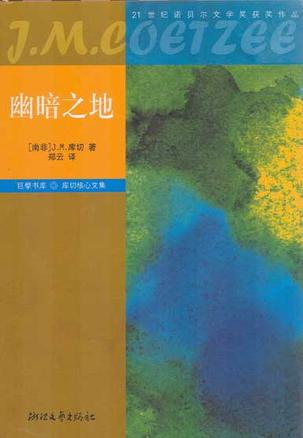
幽暗之地
库切是2003年诺贝尔文学奖获得者。他最早的小说《幽暗之地》初次展露了善于移情的艺术才能,这种才能使他一再深入到异质文化中间,一再进入那些令人憎恶的人物的内心深处。小说描写越南战争期间一个为美国政府服务的人物,挖空心思要发明一套攻无不克的心理战系统,与此同时他个人生活却糟糕透顶。此人的奇思异想与一份十八世纪布尔人在非洲腹地的探险报告并列而述,展示了两种不同的遁世方式。一者是智力的夸张和心理上的妄自尊大,另者充满活力,是富于荒蛮气息的生命进程,两者互为映照。 -
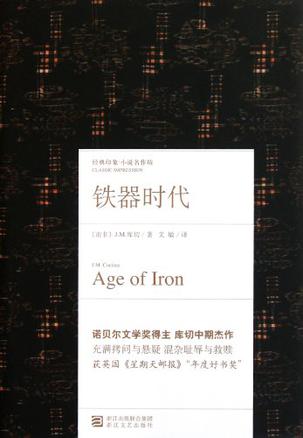
铁器时代
的确,库切——无论是他的人,还是他的作品——常常会让我们想到铁。他像铁一样冷酷,坚硬,不动声色。但与其说这是出于天性,不如说更是出于需要,出于一种抵抗这个世界的需要。通过文学和虚构,他创造了一种新的、库切式的抵抗风格,而这本书就是这种风格最成熟最炽烈的表现:库切的中期杰作——《铁器时代》。一起来翻阅《铁器时代》吧!